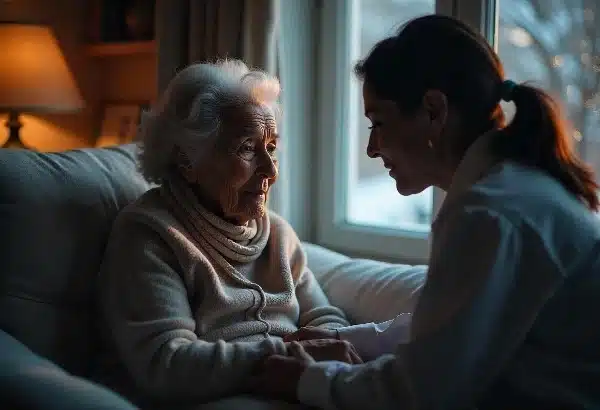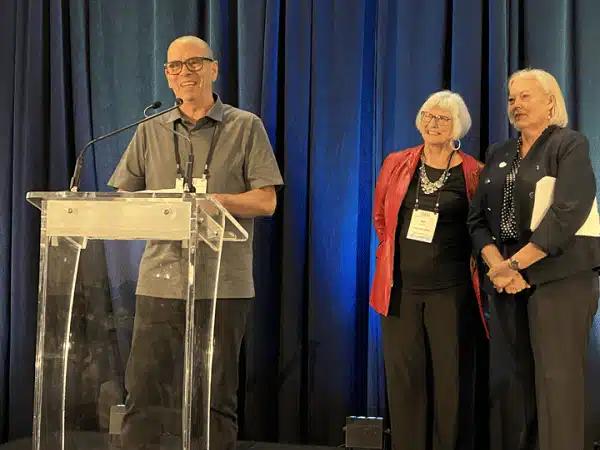by Françoise Mathieu, M.Ed., CCC. Compassion Fatigue Specialist
As a compassion fatigue specialist, I have the privilege of travelling across North America each month, meeting helping professionals of all stripes: nurses, social workers, physicians, police officers, lawyers, and a myriad of others who work in high touch situations with individuals with complex needs.
Sometimes I’m offering a lunchtime keynote, and in other instances a half or full day workshop. During these trainings, participants explore the many-layered challenges of their jobs, exploring their struggles with insufficient resources, inadequate pay, secondary trauma exposure, compassion fatigue and the risks of burnout. Working in this field can be tough when there isn’t enough to go around, and we acknowledge that in our work together.
Understandably, overwhelmed and depleted helping professionals also want solutions when they come to our training and they frequently ask challenging questions: “can we prevent this?”, “What about my workplace, aren’t they responsible for providing a healthy work environment?”, “What can I do when my case-load has doubled in the past three years?”
During the first decade of my work as a trainer, I was a bit at a loss when faced with these queries. I knew that self-care was probably a good idea for everyone, and that managing better work-life balance and getting a handle on debt – so that you could reduce your working hours – was certainly a good plan, but I was not able to find much hard data on what truly worked to combat huge case-loads and regular exposure to very difficult trauma stories. I started hearing from many frustrated and frankly just plain angry employees who were drowning in work and felt unable to see a light at the end of the tunnel. Managers also started approaching me, asking “what can we do to support our staff?”
So, in search of answers to these pressing questions, I went back to the drawing board and had a renewed look at the research. Luckily, some new solutions started to emerge. Of course, I was not the only person on this search – there is now a movement afoot to try and explore ways to make this challenging work sustainable for staff and agencies. How do you support and protect your child pornography investigator? How do you make sure that the pediatric cancer specialist stays healthy and hopeful? The answer, it appears, lays in a multi-pronged approach where personal, professional and organizational strategies all have a role to play.
The Choices you Make
As an individual, you must take responsibility for your own self-care and for the strategic alliances you form at work. Are you priding yourself on working all day without eating a healthy lunch? Do you watch four hours of Netflix at night, going to bed far too late and fuelling yourself with caffeine to get through the day? Do you spend your breaks with the most negative person in your workplace, engaging in pointless office gossip? These choices are yours to own, and although it may seem hard to believe that eating a nutritious midday meal has anything to do with sustaining your compassion, remember that none of us can focus properly on our clients’ and patients’ needs, and maintain our energy if we are not properly fuelling ourselves.
There is of course so much to be angry about in our flawed system: poverty, discrimination, injustice, office politics, unfair rules, etc. All of us could spend most of our days engaged in the BMWs (bitching, moaning and whining), but how productive is that, in the end? In my workshops I refer to the BMWs, as a fake workout, where we have the illusion that we are working on resolving the problem, but we’re really just watching an exercise video while eating a bag of chips.
Key Professional Strategies
Professionally, having access to timely and good quality debriefing and supervision has been found to be crucial, particularly for those of us who work with complex, high trauma-exposed caseloads. I have written an article on best steps to debrief without retraumatizing one another.
If you have not yet done so, making sure that you are trained in what is called “Trauma-informed care” is highly protective as well. Trauma-informed refers to the process where we learn about the impact of trauma on our patients’ and clients’ behaviours, choices and ways of making meaning of the world. It can help us see solutions where we previously only saw their frustration, sabotage and failure to get better.
What can organizations do?
New research suggests that some of the most effective organizational strategies reside in providing staff with more control over their schedule, and a reduced exposure to trauma. Having the ability to interrupt your workday to take your child to her doctor’s appointment, and then return to work, being able to work from home once in a while and having the choice of which shifts you take. Research also suggest that managers need time to grow into their roles and more training in learning how to supervise staff.
In my work in the compassion fatigue field, I saw a growing need for connection and for a forum where helping professionals could gather and share best practices, network, provide support to one another and celebrate the work that we do. This gave rise to the annual compassion fatigue conference, now called “Care4You” which has been held every June in Kingston, Ontario for the past five years. The themes of the event are to Learn, Connect and Refuel. The conference sells out every year, and is filled with helping professionals from all walks of life: personal support workers, nurses, paramedics, physicians, and so many more.
At the end of the day, what matters most in this challenging and rewarding work that we do, is connection with others. That is almost impossible to do when we are too depleted or too angry to talk to one another. The solutions are complex, but first and foremost they require for us, as individual helpers, to make some difficult but important decisions about what kind of a professional we are going to be, even when working in impossible circumstances.
What are Compassion Fatigue and Vicarious Trauma? Watch the video
For more information about the June 9-10, 2015 CARE4YOU conference: www.cfconference.com
Françoise Mathieu is the director of Compassion Fatigue Solutions








